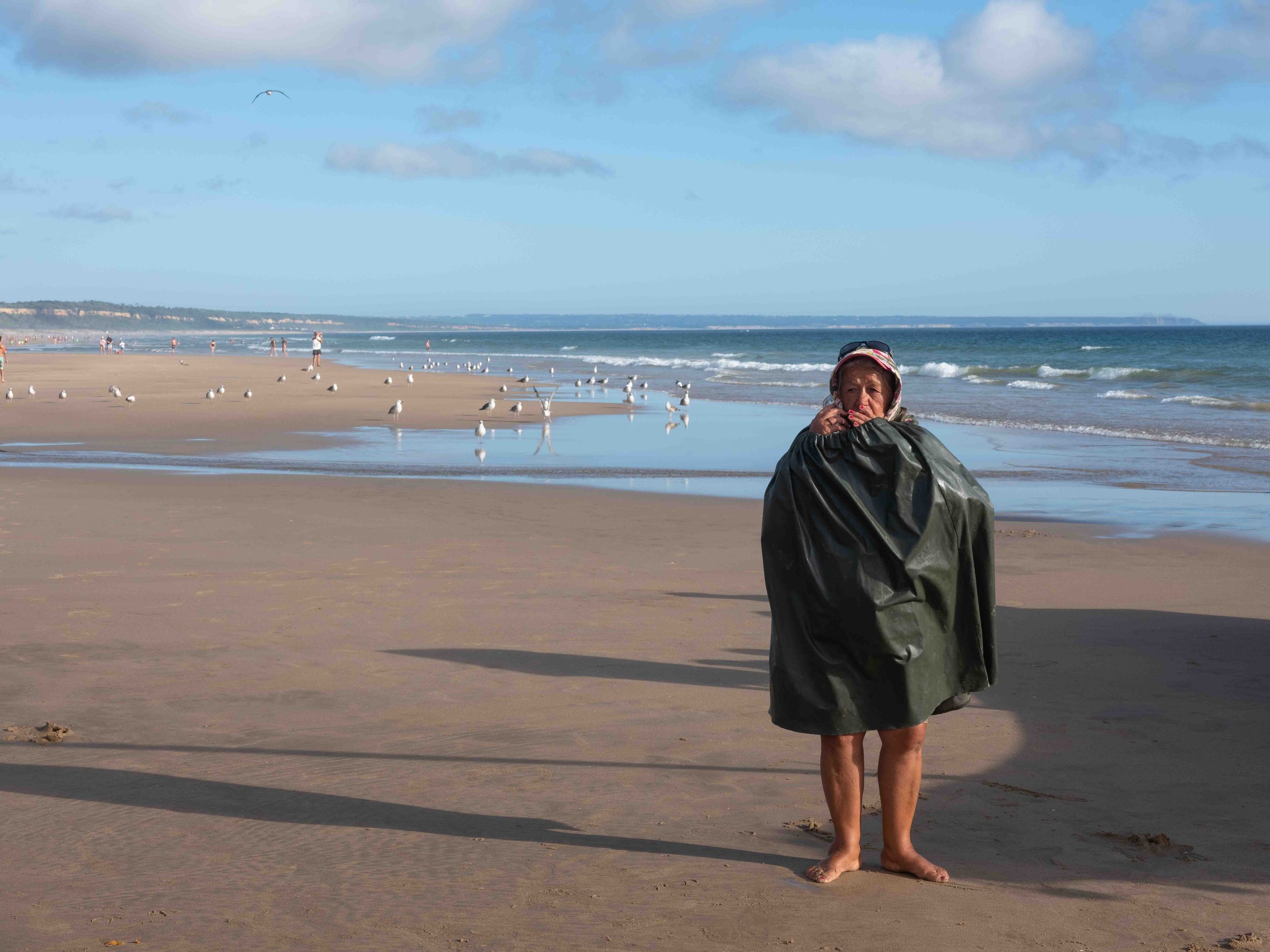Xávega
On a beach near where I live in Lisbon there are groups of people, often families, that use a traditional method of fishing called xávega. Using a cone-shaped net to trawl shallow waters, it’s been around in some form in the Mediterranean for centuries. Of course, it looks a little different now, with engines, tractors and winches replacing oars, oxen and arms.
I have been photographing the same group on and off since 2021; I don’t know them personally, but I have printed some of my photos for them and can get a little bit closer to them as they work. There’s often a crowd around them, especially when the fish are being brought in and in the summer when the beach is busier. It’s a mix of curious tourists making videos on their phones, people who are waiting to buy fish and locals idly watching and chatting. As the project has developed, the onlookers and their interactions with the group have become part of the focus.
Though it is on the Register of Intangible Cultural Heritage of Mediterranean Countries, xávega is mostly a dying art. It’s hard work for not much money, and a lot of younger people don’t want to start if they’re not part of a fishing family, or continue the business if they are. There are a few “living museums” where people in traditional clothing work or sell produce, and you can sometimes see the original colourful boats being used (albeit with outboard motors as well as oars). Yet this can feel like an amusement park version of the real thing, dressing up for tourists and the cameras.
In a way, I think the group I have been making images of are the real heirs to the tradition. They are much more practical, and try to make the catch easier and less labour intensive. It’s their job after all, and getting a heavy boat in and out of the sea and managing several kilometres of net full of fish all day is hard going.
In this series, I want to document xávega as it is today. I am also interested in the place of small-scale production in an increasingly globalised and mass-produced world, both in terms of the environment and sustainability as well as meeting humanity’s growing needs for food. The answer may seem obvious, but there are contradictions: even on a small scale running diesel tractor engines all day is hardly environmentally friendly, and this style of dragnet fishing is notoriously indiscriminate about what gets caught in the net.
I would like to expand the project by trying to be more involved with the entire process, such as going out in the boat when they drop the nets, moving the fish to the warehouse in the tractor and spending time with the group outside of work. There are places in Spain and Morocco where people fish in a similar way, so I have also considered visiting them to see the connections, differences and how other countries preserve cultural practices.




































